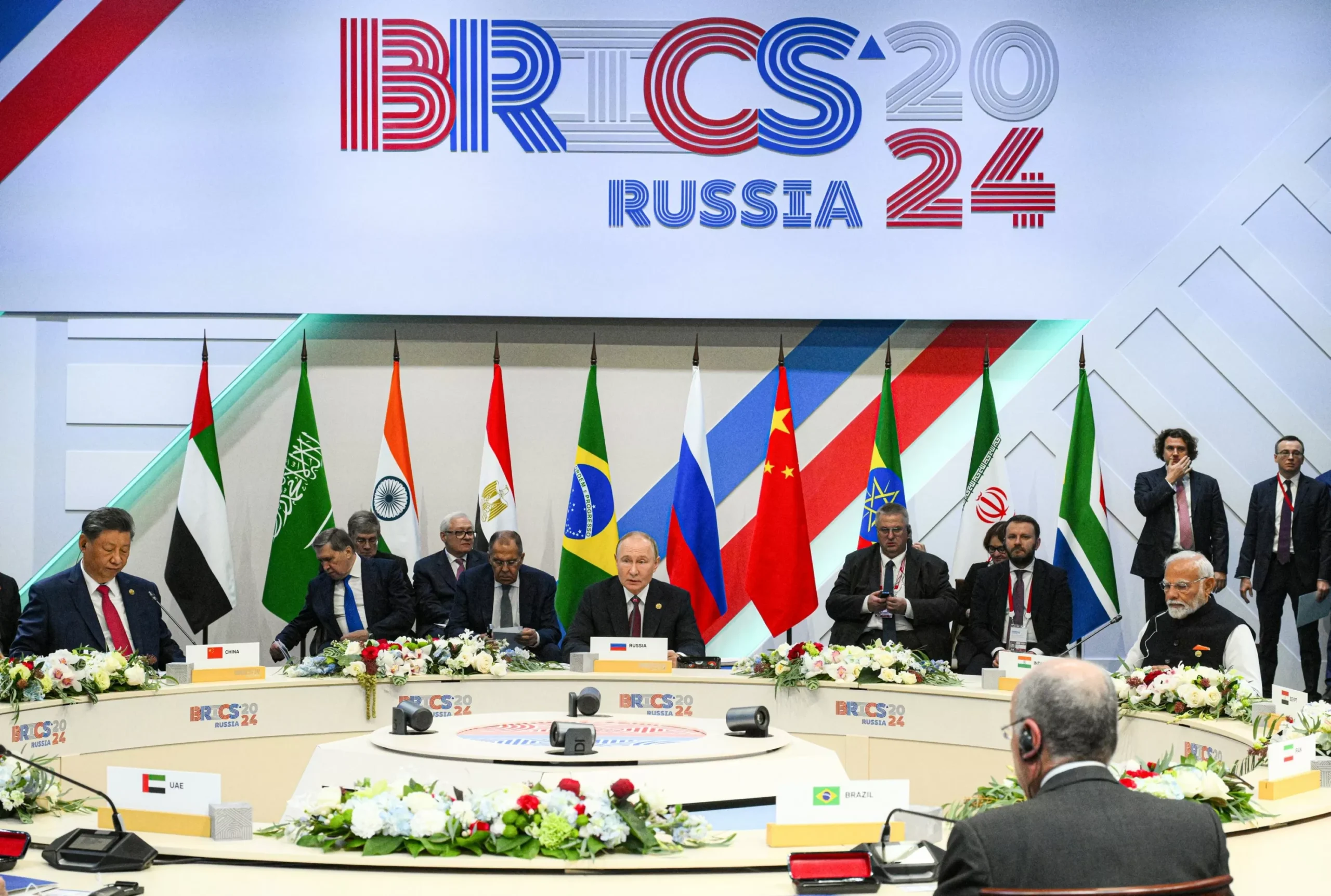Russian President Vladimir Putin praised the emergence of a multipolar world order as he opened the BRICS summit on Wednesday. The summit, attended by the leaders of Brazil, Russia, India, China, and South Africa, was seen as a testament to the growing influence and power of these emerging economies. In his speech, President Putin positioned the gathering as a symbol of the shift away from Western-dominated international relations towards a more balanced and cooperative global order.
The BRICS nations represent over 40% of the world’s population and a combined GDP of over $17 trillion. As such, they hold significant economic and political influence on the global stage. For too long, the Western powers have held a monopoly on decision-making and shaping the global agenda. However, President Putin’s words at the summit signaled a turning point where the voices of these emerging economies will now be heard and taken into account.
He hailed the BRICS as a “key factor in promoting a multipolar world,” emphasizing the importance of cooperation and mutual respect among nations. This sentiment is a refreshing change from the divisive and unilateral approach taken by some Western powers in recent years. President Putin’s call for a multipolar world order is a clear message to the West that the BRICS nations will no longer be relegated to the sidelines and will play a significant role in shaping the global landscape.
The summit also saw the signing of several agreements, including a memorandum of understanding on cooperation in science, technology, and innovations. This further highlights the potential for collaboration and progress among these nations. President Putin also stressed the need for increased economic cooperation, with a focus on trade and investment. Such partnerships will not only benefit the BRICS economies but also have a positive impact on the global economy.
The BRICS nations have also been vocal in their support for a more just and equitable international system. The current system, dominated by the Western powers, has often been criticized for its bias and lack of inclusivity. President Putin’s call for a multipolar world order is a step towards addressing this issue and creating a more balanced and fair global playing field. It presents an opportunity for the BRICS nations to have a greater say in international affairs and work towards a more harmonious world.
The summit also provided a platform for discussing pressing global issues, such as the COVID-19 pandemic and climate change. These issues require global cooperation and coordinated efforts, and the BRICS nations are well-positioned to lead the way. President Putin reiterated the importance of joint efforts in the fight against the pandemic, highlighting the success of the BRICS Vaccine Research and Development Center in developing the first-ever BRICS vaccine.
Furthermore, the summit saw the adoption of the Delhi Declaration, which outlined the BRICS’ commitment to promoting peace, security, and stability in the region and globally. This declaration sends a strong message of unity among the BRICS nations, who have shown a united front in the face of challenges and uncertainties.
In conclusion, the BRICS summit, with its theme of “BRICS@15: Intra-BRICS Cooperation for Continuity, Consolidation, and Consensus,” has once again reaffirmed the importance of this alliance in shaping the global order. President Putin’s call for a multipolar world order is a significant step towards creating a more inclusive and just international system. The BRICS nations have proven that they are strong and united, and their voices will no longer be ignored. As we move towards a more balanced and cooperative world, the BRICS will undoubtedly play a vital role in promoting peace, stability, and progress for all.





![Complete BritRail Pass Guide [Types, How to Use It, Pros + Cons]](https://inside-news.uk/wp-content/uploads/2025/06/00221EB4-BCA2-4DBB-6CD4-83DBC37D71FA-120x86.webp)












